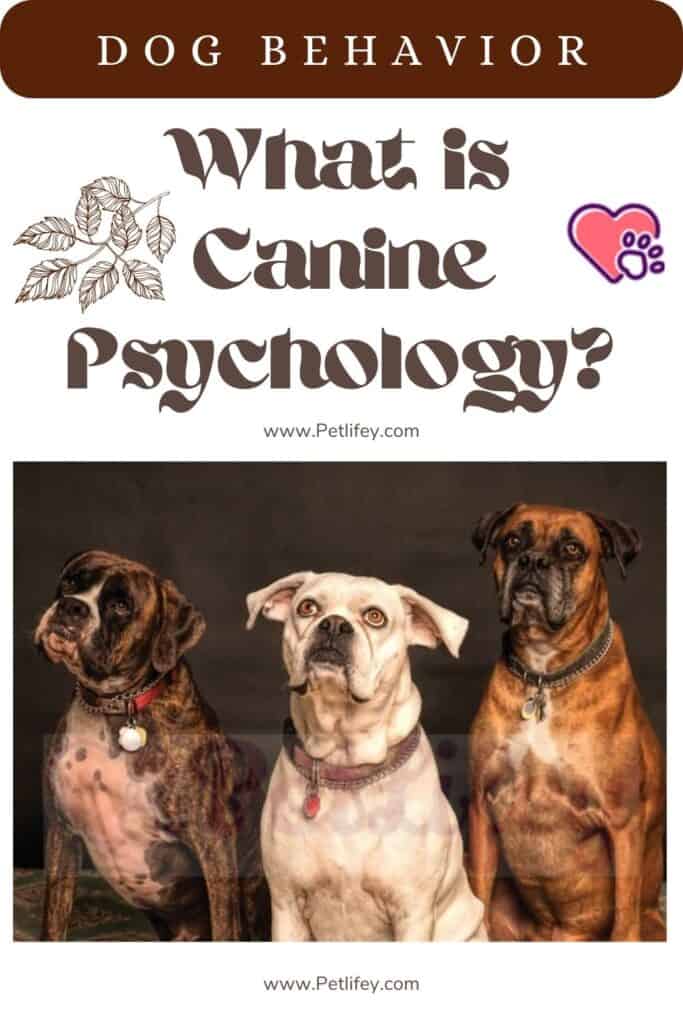
Many people believe that canine ethology and canine psychology are synonymous. When we talk about canine ethology we refer to the study of the animal in the wild, and therefore the original behaviors in nature and instincts are studied. Canine psychology, on the other hand, deals with the study of the behavior of the dog socialized with humans. Thanks to canine psychology we can obtain important information about our four-legged friends and learn to relate to them in the most appropriate way.
Understanding four-legged friends
Thanks to canine ethology and psychology we can study the behavior of our four-legged friends in relation to:
- To the other dogs
- To other animals
- To human beings
Important factors are taken into account such as:
- The instinct
- Mating
- Aggression
What canine psychology is for
The dog psychology gives us the opportunity to learn more about our faithful four-legged friends. It helps us to understand what they need, and above all we learn to treat them in the most appropriate way respecting their nature because we are able to distinguish innate (instinctive) behaviors from learned behaviors.
These two disciplines offer us an indispensable tool to educate and train our tender friends and to live with them in the most peaceful way possible.
The behavior of the owners plays a fundamental role in avoiding the dog’s behavioral disorders.
Because through ethology we can get to know our dog better

Through the study of the behavior of dogs it was possible to demonstrate that:
- They are extremely intelligent beings. They can understand 200 words, like two-year-olds.
- They are social animals. For this reason it is not advisable to leave them alone for more than eight hours.
- They need a lot of exercise. This is the only way to avoid the onset of anxiety and stress which, in turn, are the basis of destructive behaviors and excessive barking.
Learn to respect the innate behaviors of dogs
Although the dog is the pet par excellence, it retains some primal instincts. It is the human being’s job to respect them and not repress innate behaviors such as:
- Scrape the ground after doing the needs
- Turn around before crouching
- Rolling around on smelly things like feces, carcasses, etc.
- Smelling the “behind” between them
Human behavior and canine behavior
As we have said before, the behavior of the owners is essential to avoid the onset of behavioral disorders in the dog.
It depends on us to ensure proper puppy socialization period (remember that the period of socialization is between the 3 and the 12 weeks of age).
Through socialization the dog:
- Get used to new situations
- Check your aggression
- Learn to live with other animals
- Get used to the noises
Certain behavioral disorders in dogs
Dogs are social animals and to be happy, serene and balanced they need contact with the owner.
If a dog cannot interact properly with humans, it becomes frustrated and will begin to have destructive behaviors that are nothing but the manifestation of stress and anxiety.
The dog exhibits abnormal or inappropriate behavior when:
- It turns on itself
- It chases its own tail
- It bites its paws
- Chew your clothes
- Compulsive licking or scratching
- It barks and howls all the time
The main behavioral problems of dogs
You should know that the most common dog behavioral problems are:
- Phobias or fear of specific things or circumstances (such as fear of fireworks),
- Anxiety due to an unresolved phobia or an inability to adapt to a new situation.
- Depression caused by some trauma. It may happen that the animal does not overcome the disappearance of the owner or the abandonment.
Healthy and happy dogs
As you have been able to see even a few basic notions of canine psychology can be enough to have a peaceful and happy coexistence with your dog.
Do not forget that each animal is a universe in itself, unique and unrepeatable. The personality of your dog depends on genetic factors, on the breed and above all on the education and respect that the animal receives.
It is very important to look after both the physical well-being of the animal and its mental and emotional health. To guarantee your dog a long and peaceful life you must love them, pamper him and above all respect their nature as a dog.



